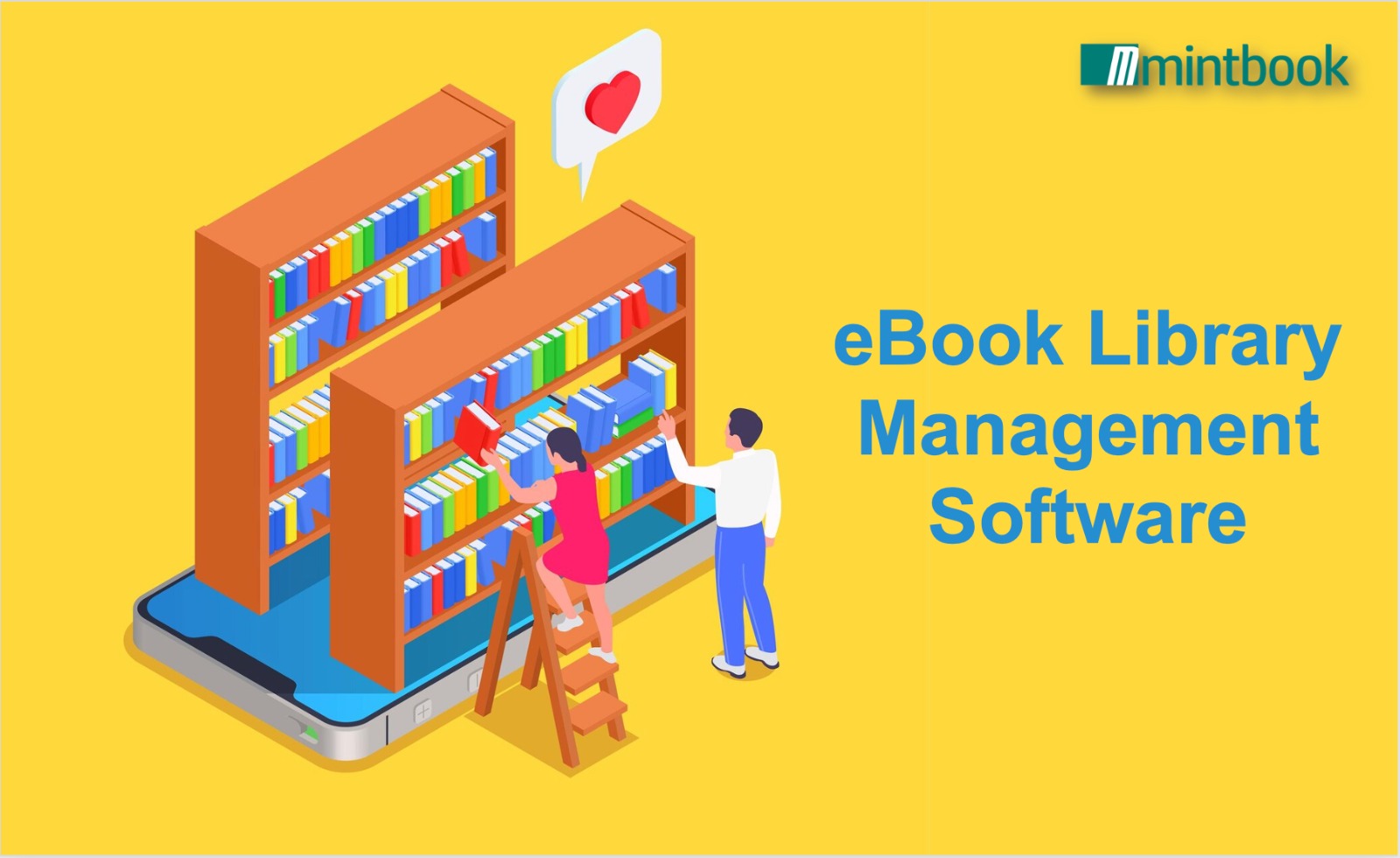Unlike printed books, eBooks or electronic books help readers acquire and retain knowledge by combining text and images. Also, a reader can watch relevant educational videos by clicking on the hyperlinks embedded in the eBook. Hence, enterprises and educational institutions invest in eBook libraries while adopting and implementing eLearning.
However, they need intuitive tech tools to manage the eBook library without putting in extra time and effort. As the name indicates, eBook library management software makes it easier for organizations to automate the control and management of eBook libraries.
An administrator can access the web-based software on demand using either computers or mobile devices. Hence, he can organize and track the large database of electronic books anytime and anywhere. Likewise, the software enables learners to access the desired eBooks on demand.
The search interface provided by the software makes it easier for learners to find and access relevant eBooks in seconds. A learner also has the option to read eBooks on desktops, laptops, smartphones, and tablets. However, the eBook library management tools differ from each other in the category of features. We can understand the usage of the eLearning tool by discussing some of its prominent features.
9 Important Features of eBook Library Management Software
Repository of Copyrighted eBooks
EBooks speed up eLearning implementation by eliminating content creation and optimization needs. However, an organization has to negotiate with multiple publishers and comply with copyright laws to provide eBooks to learners.
The eBook library management software enables organizations to access a repository of copyrighted and licensed eBooks. Hence, it becomes easier for an organization to access and share the required eBooks without purchasing licenses and violating copyright laws.
Curated Content Sharing
New-age digital library platforms enable learners to access eBooks seamlessly using computers and mobile devices. At the same time, they boost knowledge acquisition and retention by delivering curated content.
The software uses intelligence technologies to gather relevant and reliable content from multiple sources. Additionally, it recommends relevant eBooks to learners using artificial intelligence (AI) algorithms.
Search Interface
While acquiring knowledge, learners often search for eBooks related to a specific topic or concept. The eBook library management software helps learners find relevant eBooks by providing an intuitive search interface.
A learner can use the search interface to find relevant eBooks by entering a topic or search keywords. At the same time, he has the option to scan and organize search results using multiple parameters like author, publisher, or publication date.
Catalog Management Tools
While managing libraries, librarians list and organize books by creating catalogs. In addition to making it easier for them to find relevant books, catalogs convey important information about individual eBooks like title, subject, author, collaborators, and series.
While implementing the eBook library management software, administrators can create multiple catalogs or categories using easy-to-use tools. The catalogs make it easier for learners to access relevant eBooks according to a specific course or training program.
eBook Creator Software
New-age library management solutions enable instructors to create and upload eBooks using intuitive tools. An instructor can use the eBook creator software to form eBooks by gathering or repurposing existing content.
For instance, a corporate trainer can produce eBooks by accumulating articles, blogs, and presentations covering specific topics. Thus, it becomes easier for learners to learn a topic by accessing relevant and real-time information.
Multi-user and Multi-language Support
Leading eBook library management solutions feature multiple languages. In addition to providing access to eBooks in several languages, they enable learners to search for eBooks in local languages. The multilingual support makes it enterprises to train, reskill, and upskill employees across regions.
At the same time, multiple learners can access the digital library platform seamlessly using their preferred devices. Also, the same eBook can be accessed and downloaded by a large number of learners simultaneously across locations.
Learning Experience Gamification
Gamification is one of the hottest trends in eLearning. Both educational institutions and enterprises use gamification techniques to keep learners engaged and increase course completion rates. New-age digital library management software helps organizations gamify learning experiences.
They boost learner engagement by providing popular gamification features like coins and badges. These gamification features make learners read eBooks regularly and complete online courses on time.
Integration APIs
Application programming interfaces (APIs) integrate or unify disconnected software applications by working as messengers or intermediaries. Cloud-based eBook library management software features APIs. The APIs make it easier for organizations to integrate the digital library with commonly used eLearning tools and platforms.
Many organizations use APIs to integrate the software with learning management systems or virtual classroom software. The integration enables learners to access a wide range of eBooks while taking online courses or training programs. At the same time, the APIs help simplify eLearning implementation and management by forming a unified learning platform.
Customization Options
Unlike on-premise library management software, cloud-based eBook library management tools can be customized on demand. An organization can curtail costs by accessing the library management software by subscribing to the appropriate pricing plan. Leading providers allow organizations to choose pricing plans based on a slew of parameters.
Hence, organizations can customize the software according to the number of learners or eBooks. Additionally, they allow organizations to customize the eBook library by choosing and combining the required eBooks. The customization options make it easier for an enterprise or educational institution to access eBooks according to specific courses or training programs.
Conclusion
While implementing eLearning, organizations leverage eBook library management software to simplify eLearning content management. In addition to eliminating license or copyright management, the software allows each learner to access relevant eBooks using the preferred device. However, decision-makers must use features as the primary criteria while shortlisting and selecting eBook library management systems.
About Mintbook
Mintbook is one of the leading eLearning solution providers that provide eBook library management software as a part of a unified learning platform. The unified learning platform enables organizations to implement a learning management system (LMS) and online classroom software while simplifying and streamlining eBook library management.

